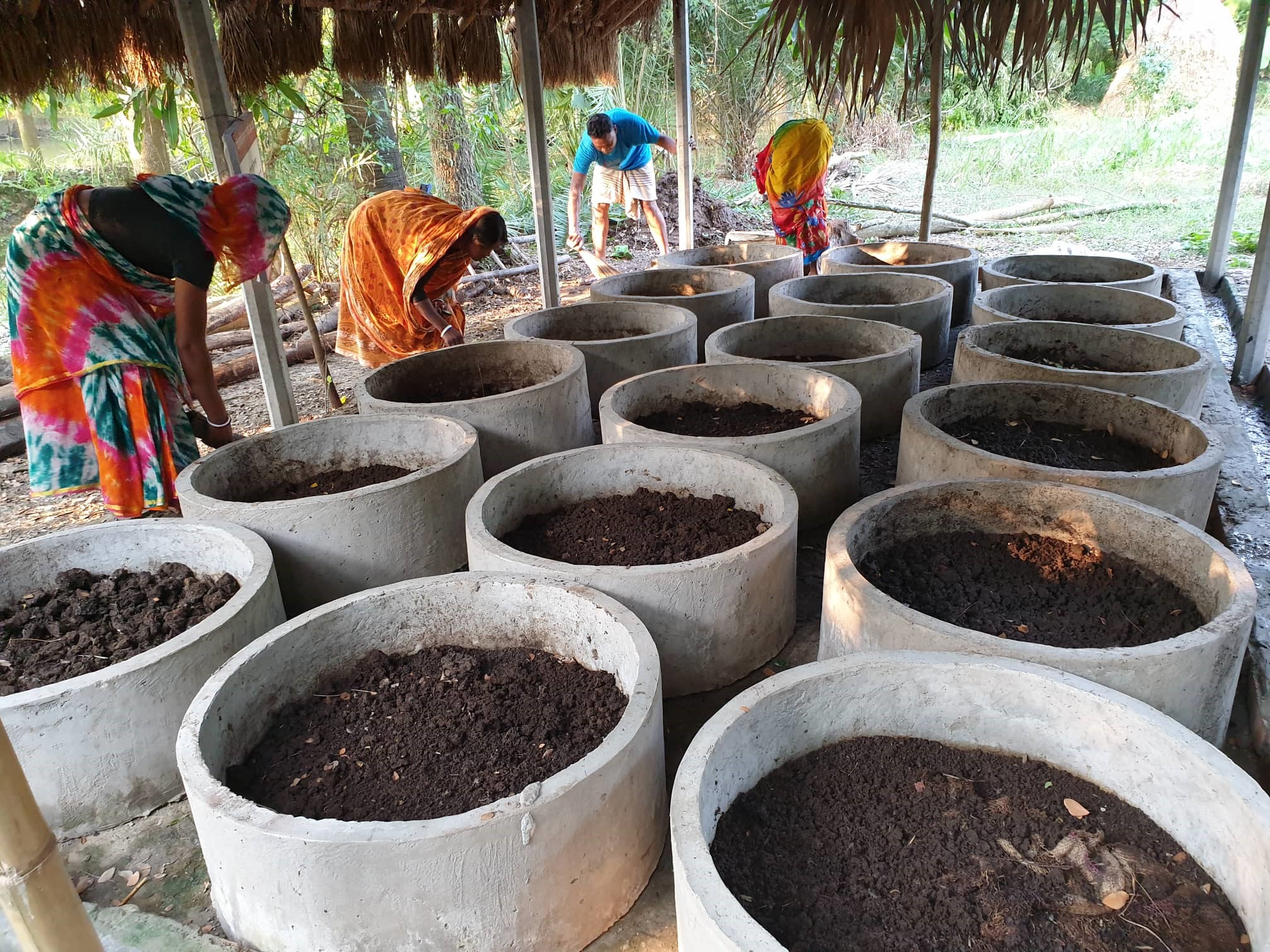VERMICOMPOSTING – A SOURCE OF ALTERNATIVE INCOME FOR WOMEN IN AGRICULTURE
Kurigram District, located in the northern part of Bangladesh is one of the most disaster-prone areas due to constant flooding, hailstorm, riverbank erosion, storms and more. Agriculture is the main livelihood sources for most people residing in this climate vulnerable area district. Rising climate induced calamities reduce agricultural production which leaves people in states of dismay as they struggle to make ends meet. Often, the main burden of climate change fall on women- the most vulnerable groups of rural populations. Hence, this region requires more investment and resources to strengthen resilience to maintain or lift the economic growth of the communities, particularly women.
With a view to strengthening agricultural resilience to climate change, Local Government Initiative of Climate Change (LoGIC) Project is enabling climate vulnerable women to undertake vermicomposting as a livelihood practice. LoGIC is a multi-donor collaborative initiative of the Government of Bangladesh, European Union, Sweden, United Nations Capital Development Fund and United Nations Development Program which support women to maintain financial stability and empowers them by enhancing their potential, introducing successful practices, and demonstrating ways to generate alternative sources of income.
Now for several groups of women in this climate prone district, the production of vermicompost has become the main activity that ensures the family’s income and its well-being. Vermicompost is an environmentally friendly and organic fertilizer widely used in many tropical areas to fight climate change impacts on agriculture. Vermicompost produce good quality compost in terms of nutritional contents. Use of vermicompost for agriculture can preserve, improve eminence, fertility, and productivity of the soil which may be lost due to climate change impacts like soil erosion, salinity intrusion, flooding etc.
LoGIC provided training and other support to these climate vulnerable women for undertaking climate-resilient economic activity such as vermicomposting. They soon learnt that vermicomposting technology for composting of organic wastes is unusually effective to increase crop yield by many folds and contribute to improvement of soil quality and ecological conservation.
Jamila
Jamila was born and raised in the remote village of Char Borovita of Raniganj Union of Chilmari Upazila of Kurigram District. She has two daughters and one son. Jamila has been working as a labourer in agricultural cultivation.
“I have been working in agricultural land for over 20 years. As years go by, the soil has become less and less fertile due to increased flooding and soil erosion. I tried using various chemicals and manure to solve this problem, but nothing worked.”
Through LoGIC’s Community Resilience Fund 26 group of women received TK. 1,76,000.00 for vermicomposting and Jamila is one of them. LoGIC also established a co-financing mechanism where these women contributed Tk. 2,000 individually totaling to Tk. 52,000 from their personal funding to ensure strong ownership and sustainability.
“After gaining a hefty profit from vermicomposting, we have reinvested these funds in second rounds of business. Moreover, we have gained increased production from using this manure for individual homestead vegetable cultivation as well,” says Jamila, a recipient of this fund.
Within a month of composting, they harvested over 1200Kgs of vermicompost. With a total investment of Tk. 5000 these women sold Tk.12,000 and made a profit of Tk. 7000.00 – and this is only from the first round of harvesting.
As harvesting continues every 25 to 28 days, these women make more rounds of sales, hence generating greater shares of profits for themselves.
Working with local government authorities, local officers of agricultural departments, project staff, LoGIC support these women’s groups through every step of the process — planning, budgeting, production for composting, market linkages and more.
“Vermicomposting has continuous business prospects and does not cost us much. The returns are high as well.” says Jamila.
Jamila feels a ray of hope in her life because she invested part of the profit from her business in her family’s health and wellbeing. Others like Jamila are also looking forward to expanding and diversifying their business even further.
